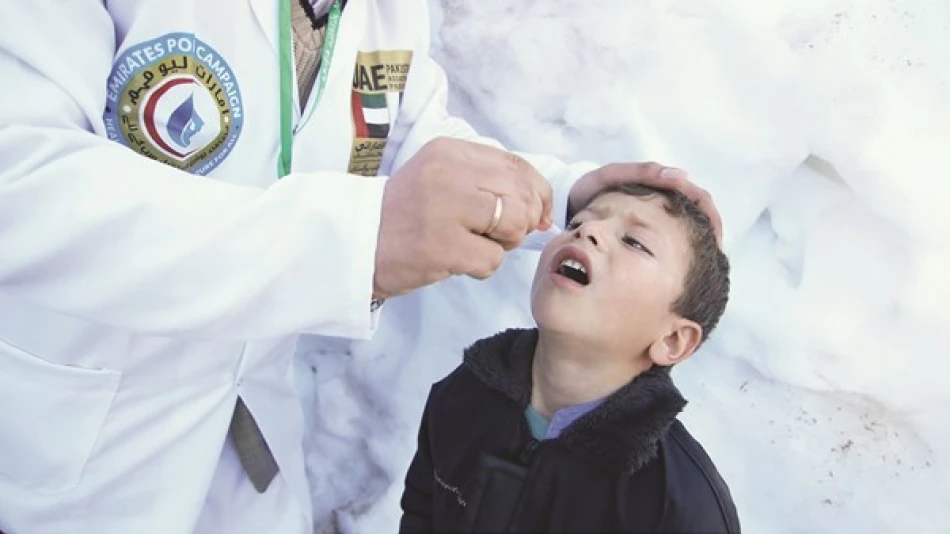
UAE Leader's Initiatives Propel Global Efforts to Eradicate Polio
The UAE joins the world today in marking World Polio Day, showcasing how the nation has become a global pioneer in polio eradication efforts. The country hasn't recorded a single polio case in three decades, while its international vaccination campaigns have reached over 140,000 children this year alone.
UAE President Sheikh Mohammed bin Zayed Al Nahyan has spearheaded the country's global health initiatives through the "Reaching the Last Mile" program. This effort focuses on Pakistan and Afghanistan - two of the last countries where polio remains endemic. The UAE has partnered with the Bill and Melinda Gates Foundation and the World Health Organization to fund emergency vaccination campaigns, including recent efforts in Gaza.
Health Minister Ahmed bin Ali Al Sayegh said the UAE's approach combines high vaccination coverage with active surveillance to detect and treat any suspected cases quickly. The country officially declared itself polio-free in 2007, but continues rigorous monitoring to maintain this status.
Here's what makes the UAE's program effective: The national immunization schedule follows WHO recommendations and uses both oral and injectable polio vaccines. Children under five receive priority, along with those aged 5-6 in first grade. The system also provides catch-up vaccinations for anyone under 18 who missed earlier doses.
Dr. Mohammed Salim Al Olama, Undersecretary at the Ministry of Health, explained that the UAE has turned immunization into a community culture. The country uses artificial intelligence to monitor and analyze infectious disease indicators, allowing for proactive responses to potential outbreaks.
The Emirates Health Services Foundation reported vaccinating more than 140,000 children against polio since the beginning of this year. Dr. Shamsa Lootah, Director of Public Health Services, noted that the foundation offers two types of polio vaccines and incorporates them into combination vaccines for easier administration.
But the UAE's impact extends far beyond its borders. The country's international contributions have drawn praise from WHO and regional organizations. Through funding, expertise, and training programs, the UAE helps strengthen health systems in countries still fighting polio.
The private healthcare sector also plays a crucial role. Dr. Ahmed Issa from Saudi German Hospital Group emphasized how private facilities complement government efforts by providing necessary vaccinations and keeping medical staff updated on the latest immunization protocols.
The WHO aims to eradicate polio globally by 2030. With only two countries - Pakistan and Afghanistan - still reporting cases, the UAE's experience offers a blueprint for other nations. The country's three-decade success story demonstrates that sustained political commitment, robust surveillance systems, and international cooperation can eliminate this debilitating disease.
The UAE's approach reflects its Vision 2071 goals, treating child health as the foundation for society's future. By combining domestic success with international humanitarian efforts, the country has positioned itself as a leader in global health security and disease eradication.
Most Viewed News

 Layla Al Mansoori
Layla Al Mansoori






